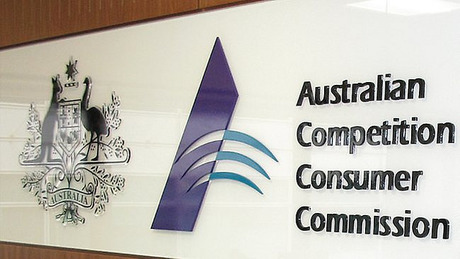ACCC invites telecoms sector to weigh in on regulation

The ACCC has invited the telecoms industry to weigh in on regulatory issues in a rapidly changing competitive environment.
Speaking at the CommsDay Congress in Melbourne, ACCC Chairman Rod Sims said the Australian telecoms sector is dealing with changes related to rapidly evolving technology, structural change, product innovation and changing consumer preferences.
“While the ACCC stays abreast of the changing environment to ensure our regulatory decisions are in the best interests of consumers, we occasionally need to take stock to identify emerging issues to ensure that our regulatory framework keeps pace with the rate of change,” he said.
He said a key outcome of the current ACCC market study into the telecommunications sector will be to determine whether the current form and level of regulation is appropriate.
He also stressed that the ACCC has not yet made a decision on whether it is necessary to declare a domestic mobile roaming service, which would potentially require incumbent operators to make their network infrastructure available to rivals in areas where these rivals lack their own.
“On the one hand, we understand that mobile coverage and choice of mobile service provider and competitively priced retail offers are important issues for consumers living and working in regional areas,” he said.
“On the other hand, the ACCC is well aware the mobile network operators have all made significant investments in their mobile networks. We also understand there are real economic challenges for investing in mobile networks in some areas of Australia, and we understand the importance of incentives for continued investment.”
Sims also weighed in on the proposal to require the industry to give consumers more clarity on broadband speeds, including in advertising and promotional materials.
“We asked for comment because we believe there is a distinct lack of clear information about broadband performance in advertising and other material available to consumers; and there may be a range of factors contributing to this,” Sims said.
“There have been suggestions from industry, however, that consumers have unrealistic expectations about broadband speeds. Let me be clear — I think that industry advertising has contributed to this problem.”
The ACCC’s proposed broadband monitoring program would allow the industry to avoid disputes over whether poor network performance is the fault of the NBN or ISPs, he said.
Four ways AI can finally make threat intelligence useful and not just noisy
Done poorly, threat intelligence is noise. But done well, it becomes one of the most powerful...
Australia’s top tech priorities for 2026
It is anticipated that AI will evolve from a pilot project to a productive standard, underpinned...
Why AI's longevity lies in utility, not novelty
The real potential of AI is in underpinning the invisible systems powering everyday business.



